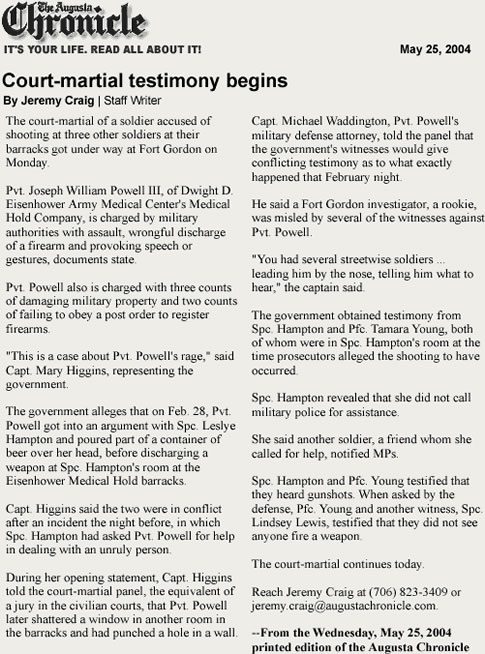Coercive Police Interrogations In The United States
One factor that continues to attract the interest of lawyers and law enforcement authorities is coercive interrogation by the police and its influence on false confessions by innocent suspects. Concern about false confessions has reached the point where large police consultancies’ use of interrogation techniques has been discredited because they risk producing false confessions. According to the Innocence Project, which focuses on exonerating convicted felons, 31 percent of DNA exonerated cases resulted in false confessions. Moreover, between 1989 and 2016, and 63 percent of DNA exoneration involved murders.
Police interrogators often use fraudulent techniques to obtain confessions from suspects. For example, it is legal for US police to lie about evidence, and coercive interrogation techniques can be used to submit a suspect to hours of verbal abuse, intimidation, and physically and emotionally distressing conditions, thereby leading the suspect to see a confession as his way out of the situation.
Although the police are forbidden to use physical force, they can use various powerful psychological tricks to extort confessions from criminal suspects, including deception during interrogations. Advocates say false confessions can be contained by simple measures such as recording interrogations and warning jurors that suspects are coerced. The police are condemned for using physical force during interrogations and are also believed to have psychological tactics that are effective in obtaining confessions.
A police officer, for example, who lies and says there is some evidence if there is not, must not force a subsequent confession. The US Supreme Court, for example, allowed the police to claim that a suspected Confederate made a confession when he did not (Frazier v. Cupp, 1969) or to find fingerprints of suspects at the scene when no one was there (Oregon v. Mathiason, 1977), but found that such acts were not sufficient to render the confession inadmissible.
The prosecution cannot use the defendant’s testimony as an involuntary forced confession in court when this happens. State and federal courts can rule out evidence if the confession turns out to be involuntary. Regardless of the state, the police are still armed to clear him out if the confession of the accused is not involuntary.
Both the US Constitution and state constitutions, as well as court opinions, state that forced confessions, are inadmissible in court. A coerced confession is an involuntary confession due more to the presumptuous behavior of the police than to the free will of the accused.
In a classic case of involuntary confession, a police officer questioned a suspect who was in pain after a serious injury and was in intensive care. The officer continued questioning the suspect despite a lawyer’s request.
In some states, law enforcement officials try to obtain confessions by deception. Some policemen torture or lock a person in a room for days without food or water until it is clear that a confession is forced. The police can also try to force confessions through physical abuse.
Psychologists, who have researched the subject for decades, say common police interrogation tactics help. Documented actual false confessions, including false evidence tricks, false claims of evidence concerning suspects, and controlled laboratory studies and meta-analyses have shown that interrogation techniques increase the number of false confessions by up to 20%, and this was also the result of Stewart, Woody, and Pulos (2018).
Police can obtain or coerce a confession, leading a suspect to admit a crime he has not committed. They can also use sophisticated and tricky interrogation processes that wear people down and make them suspect a crime. When the police question an officer who lies, some say a confession can lead to a lighter sentence.
To determine whether a confession is voluntary, the reviewing court must conduct a fact-based investigation. First, they must look at the totality of the circumstances. This includes the personal characteristics of the accused, his age, his mental health, and the circumstances in which the suspect confessed. It also includes the duration of the questioning and the conduct of the police. Second, courts determine whether confessions are voluntary or operate with a severe disability because the interrogation process is secret. Third, only the police can suspect or testify because the concept of voluntary activity refers to the accused’s mental state.
The Supreme Court has not considered the application of the Constitutional Injunction against self-incrimination in police interrogations and admissibility of confessions in federal courts because the court in McNabb v. United States issued a rule excluding confessions obtained during unnecessary delays in the presentation of a suspect for arrest or arrest. This rule was developed per the oversight powers of the courts in lower federal courts and is not applicable in the states but was designed to introduce a guarantee to the defendants that the Federal Criminal Procedure Code informed concerns about incommunicado interrogations coerced confessions. The police criminal evidence act gives judges discretion to intercede for confessions obtained through certain coercive interrogations and requires recording interrogations in custody.
A few years later, the North Carolina Supreme Court in Jackson affirmed the confession of a police officer who had obtained a knife that looked like a murder weapon, put blood on it, and confronted the suspect with fake fingerprints from the knife. The court did not address the application of the self-incrimination clause to police interviews and the admissibility of confessions in federal courts because the court in McNabb v. United States issued a rule that excluded confessions obtained during unnecessary delays in presenting the suspect for arrest or arrest. Only when the court expanded, the self-incrimination clause is divided states did it affirm this in Bram v. US in 1897. Federal and state courts introduced a new rule that allowed and excluded confessions and other confessions during police interrogations.
Overview of Gonzalez & Waddington
The UCMJ forms the backbone of the military’s legal system and applies to all active duty, national guard and reserves, and retired armed forces personnel across all branches. If you or someone close to you has been charged with a crime under the UCMJ, it is crucial that you turn to military defense lawyers for help right away. Find an ferocious civilian military defense attorneys at Gonzalez & Waddington. As a former member of the U.S. Army’s Judge Advocate General’s Corps (JAG), experienced civilian military defense lawyers, Michael Waddington has a proven track record of defending US military in both court-martial and administrative matters.
It is important for US Military service members to know their rights. Military service members have the legal right to be defended by a criminal defense attorneys so don’t wait to hire civilian military defense lawyers like those at Gonzalez & Waddington, Attorneys at Law. To begin defending your accusation, today call our determined military defense lawyers to plan a consultation with one of our criminal defense counsel.
Our military defense attorneys can manage your case and defend your freedom. Whether you are facing allegations such as: Sexual assault, Manslaughter – Article 119, UCMJ, Forcible Pandering, Title IX Sexual Misconduct Allegations, or Burglary; Unlawful Entry – Article 129, UCMJ, the unyielding military lawyers at Gonzalez & Waddington can help.






